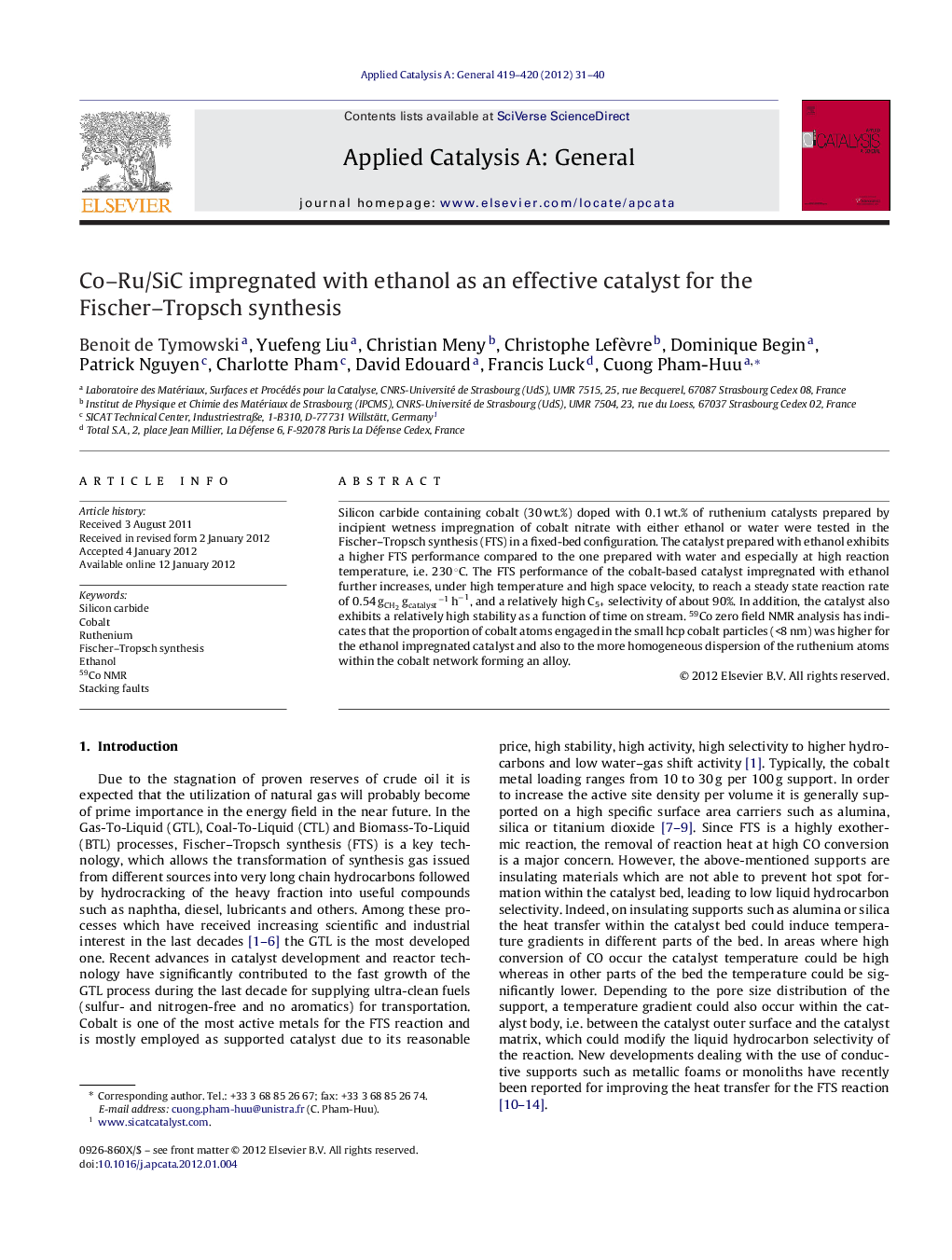| Article ID | Journal | Published Year | Pages | File Type |
|---|---|---|---|---|
| 41023 | Applied Catalysis A: General | 2012 | 10 Pages |
Silicon carbide containing cobalt (30 wt.%) doped with 0.1 wt.% of ruthenium catalysts prepared by incipient wetness impregnation of cobalt nitrate with either ethanol or water were tested in the Fischer–Tropsch synthesis (FTS) in a fixed-bed configuration. The catalyst prepared with ethanol exhibits a higher FTS performance compared to the one prepared with water and especially at high reaction temperature, i.e. 230 °C. The FTS performance of the cobalt-based catalyst impregnated with ethanol further increases, under high temperature and high space velocity, to reach a steady state reaction rate of 0.54 gCH2 gcatalyst−1 h−10.54 gCH2 gcatalyst−1 h−1, and a relatively high C5+ selectivity of about 90%. In addition, the catalyst also exhibits a relatively high stability as a function of time on stream. 59Co zero field NMR analysis has indicates that the proportion of cobalt atoms engaged in the small hcp cobalt particles (<8 nm) was higher for the ethanol impregnated catalyst and also to the more homogeneous dispersion of the ruthenium atoms within the cobalt network forming an alloy.
Graphical abstractFigure optionsDownload full-size imageDownload high-quality image (159 K)Download as PowerPoint slideHighlights► Influence of ethanol as an impregnation solvent for cobalt catalyst. ► Ethanol-based catalyst exhibits high activity under severe reaction conditions. ► Characterization of the Co phases by 59Co NMR. ► Higher activity is attributed to the presence of small hcp Co particles.
